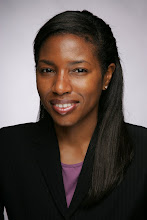Last week, as I was piecing together a diversity training presentation, I came across my “Two Wongs Don’t Make a White” slide. This corny play on words was used as a t-shirt graphic by the clothing company Abercrombie & Fitch in the earlier part of this decade. Thank goodness those t-shirts didn’t get much play and were dragged off of the market, along with Abercrombie’s image as an equal opportunity employer. (The retailer has also faced failure to hire and promote discrimination lawsuits.) Although the retailer, today, is making an effort to redeem itself, I couldn’t help but wonder what they were thinking when they exposed the market to those t-shirts. Have the lines of culturally insensitive jokes been so drastically moved that even a large retailer doesn’t know the difference between wrong and right?
With the advent of diversity and multi-culturalism, many of the invisible racial barriers in society are slowly fading away thanks, in part, to entertainment. With Justin Timberlake and Amy Winehouse producing some of the best R&B music, it’s hard to have white radio stations and black radio stations. Reality television shows openly parade mixed race-couples, making them less of a taboo or head turner.
Comedians, especially, have been the greatest catalysts for making other cultures less mysterious by lifting the lid off of what were once private inside jokes. You have Rex Navarrette openly joking about Filipino time (that is, being 20 minutes late to everything). George Lopez pokes fun at his Latino brothers and sisters on HBO specials and his network television show. Larry the Cable Guy gives Northern urbanites comedic insight to redneck life.
What happens when people at work decide to re-tell a joke they heard from Navarrette, Lopez, or Larry? Is it ok to laugh at or make a joke about another race, culture, or religion? These were the questions underlying my reasons for not watching the Dave Chappelle show.
Now, I never started a mass boycott against the show, but I was vocal about why I didn’t tune in. While I never judged anyone for watching the show, I just couldn’t support a show that profusely overuses the “N” word on national television. I felt that his show, which was written by a multi-racial staff, could be used to defend the use of the “N” word. I knew that some would argue that the word had evolved to the point where it was no longer an offensive racial epithet to denigrate black people and could be used by any and everyone. I was not ready for that level of evolution.
Comedy is tricky. The same slurs, epithets, and offensive language that comics use to get laughs, can create disrespect in the workplace, school and in other social settings. I’m sure that some snarky designer at Abercrombie & Fitch probably thought he or she was appealing to the public’s sense of humor about Asians with the hideous “Wong” t-shirts. As Abercrombie reminds us, context matters. Material that works in a nightclub often falls flat in the office.
Tuesday, August 18, 2009
When Comedy Meets Workplace Diversity
Labels:
abercrombie,
business,
discrimination,
diversity,
fitch,
workplace
Subscribe to:
Post Comments (Atom)





No comments:
Post a Comment